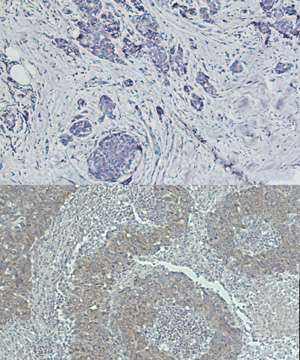Gene that inhibits tumor growth is shown to promote aggressive breast cancers

A*STAR researchers have shown that the RASAL2 gene, which is known to inhibit tumor growth in some breast cancers, actually advances tumor formation and metastasis in more aggressive forms of breast cancer and have suggested its use as a diagnostic marker.
Breast cancer is often characterized by an overexpression of cell surface proteins that bind hormones and trigger the disruption of cell division and DNA repair. Typically, cancer treatments that inhibit the activity of hormone receptors have a high rate of success, except in the case of triple-negative breast cancer (TNBC), which accounts for approximately 15 per cent of all breast cancer cases. TNBC tumor cells lose the ability to express hormone receptors, making the cancer more difficult to treat.
Qiang Yu's research at the A*STAR Genome Institute of Singapore focuses on finding the key molecules in a cancer cell's network responsible for making tumor cells more aggressive. "Identifying biomarkers which can define high-risk TNBC patients is one of our main interests," he says.
Leading a team of international scientists, Yu focused on the targets of small RNA molecules, or microRNAs, which often act as tumor suppressors and control the expression of genes that can promote cancer. If the levels of these microRNAs go down, the oncogenes' levels come up and tumors form. The researchers found reduced levels of a microRNA in TNBC and determined that its target was a gene called RASAL2.
Higher RASAL2 expression in TNBC correlates with a more aggressive tumor, a finding that intrigued Yu since it could not be easily explained by the gene's function. In tumors that express hormone receptors, the RASAL2 gene was shown to inhibit disease progression by inactivating Ras, one of the most common genes to contribute to human cancer.
Yu showed that the mechanism by which RASAL2 made TNBC cells more invasive does not require the inhibition of Ras. Instead RASAL2 binds a protein that inactivates Rac, another cancer-promoting protein, thus leading to higher Rac activity, which in turn makes tumor cells more prone to invading the surrounding tissue.
Yu does not see RASAL2 as a therapeutic target since its function might not be easily inhibited by a drug. "I think more likely RASAL2 can be pursued as a diagnostic marker for aggressive TNBC," he says (see image).
Identifying the molecular signaling pathways in cancer cells and understanding how networks change and proteins take on opposite functions is critical for reliable diagnosis that will lead to effective therapy geared toward a patient's particular type of cancer.
More information: RASAL2 activates RAC1 to promote triple-negative breast cancer progression. The Journal of Clinical Investigation 124, 5291–5304 (2014). dx.doi.org/10.1172/JCI76711

















